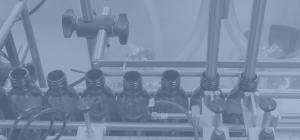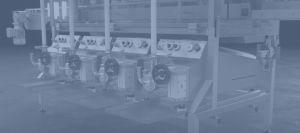News Blog
Keep up to date with the latest news, insights and features from the Adelphi Group of Companies
Managing Your Successful Transition from Semi-Automatic to Fully Automatic Filling
February 20, 2025

Businesses of all sizes are investing in semi and fully automatic filling systems to stay ahead of the competition. However, knowing the right time to scale up from one to the other can be tricky. Stand-alone machines with limited flexibility can actually hinder production, by making your space configuration less agile.
In this article we’ll be outlining what makes Adelphi Manufacturing’s Response range of scalable, flexible fillers so unique, as well signs your business is ready to transition from semi-automatic to fully automatic filling.
Ask the Expert Opportunity for UK Manufacturers:
If you’re unsure whether it’s time to transition from semi-automatic to fully automatic filling, the best thing you can do is speak to an expert. With over 35 years in the industry, Dean Willis understands the challenges faced by manufacturers on their scaling journey. Dean is offering his time for no-obligation consultations, to support you in achieving your business’ production goals.
Book a FREE 20 minute appointment with Dean >>>
3 key signs your business is ready to transition from semi-automatic to fully automatic filling:
1. You’re Struggling to Keep Up with Demand
- If orders are increasing and your current semi-automatic system can’t keep up, it could be time to fully automate. It’s worth noting that – depending on your operations – investing in further semi-automatic fillers to run consecutively can be an option which requires lower initial outlay. For example, Adelphi Manufacturing customer AAK BD Foods own eleven Response Benchtop Fillers, and say:“What we love most about the Response is the flexibility it gives to our work space. We can adapt the layout of our machines and space as production demands, and when one machine needs cleaning, we simply wheel it away and replace it immediately with another.”If more than one semi-automatic filler isn’t enough, however, it’s time to investigate fully automated options. The Response Automation Base is a frame which up to four benchtop units can fit into, which means that you can scale at your own pace – from a single head to an eight head fully automate line – by adding additional benchtop units as your output requirements increase. This allows for continuous higher speed production, ensuring that you can meet growing demand efficiently. If you are struggling with the fast turnarounds expected by retailers and distributors it may be time to start looking into upgrading your automation.
2. Your Workforce is Stretched Too Thin
- Even the best semi-automatic systems require manual input, and this can put a strain on your workforce. If operators are constantly working overtime or you’re relying on temporary staff to meet targets, automation can relieve the burden, ensuring smoother operations and reducing labour costs in the long run. Adelphi Manufacturing customer Barry M Cosmetics have chosen to incorporate their existing Benchtop Fillers into a Response Automation Base. This cost-effective scale up of a vastly improved 5,000 units per day without adding extra strain to their workforce.
3. You Need to Future-Proof Your Production Line
- Investing in automation isn’t just about solving today’s problems, it’s about ensuring your business is ready for the future. Fully automatic filling systems allow you to integrate additional machinery such as a capper or labeller, to increase production speed, or adjust to new packaging formats with ease. One of the key advantages of the Response range is its scalability. Designed to grow alongside your business, up to four Response Benchtop Filler units can be fitted into a Response Automation Base. At Adelphi you can invest in automation at your own pace, ensuring a cost-effective and sustainable path to success.

Case Study: Tristel’s 70% Increase in Productivity
Following the installation of the Response Automation line, Tristel reported a 70% increase in productivity. The system’s ability to fill two conjoined bottles simultaneously—without the need for manual intervention—transformed their production efficiency. “They’re reliable and not temperamental; I didn’t really need to look elsewhere,” says Tristel’s Production Engineer Peter Twelftree.
Making the Transition
If your business is experiencing higher order volumes, rising labour costs, quality control challenges, or increasing retailer demands, now is the time to upgrade to a fully automatic filling system. With improved efficiency, better accuracy, and the ability to scale effortlessly, automation is the key to long-term growth and success. Is your business ready for the next step? Investing in a fully automated filling system could be the decision that propels your production.
info@adelphi.uk.com +44(0)1444 472300

